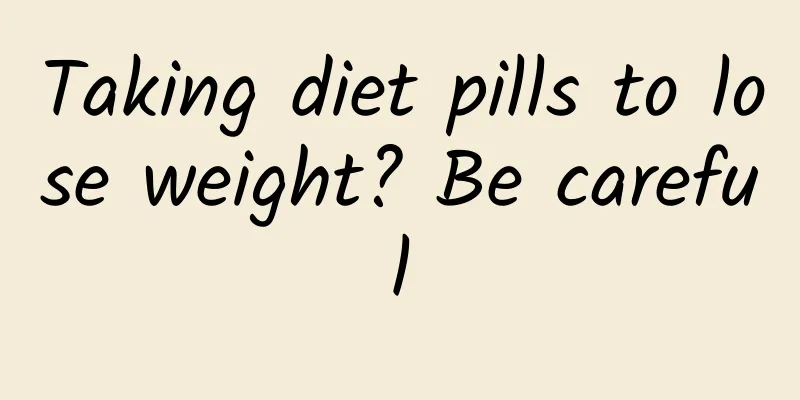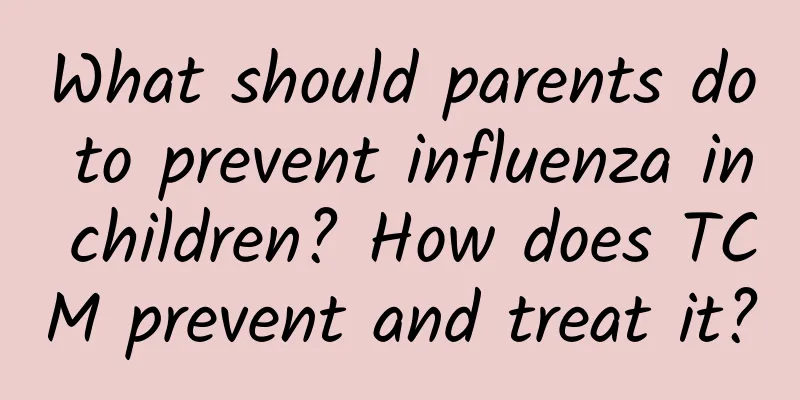Taking diet pills to lose weight? Be careful

|
Author: Wang Fang, Chief Physician, Beijing Hospital Reviewer: Chen Wei, Chief Physician, Peking Union Medical College Hospital In today's society, the concept of "thinness is beauty" has made everyone particularly obsessed with losing weight, resulting in many people favoring diet pills that claim to "lose weight just by lying down" and "lose weight easily by eating as usual." But are weight loss pills really that magical? Common Misconceptions about Weight Loss Pills Many people choose to take diet pills in order to lose weight quickly, but because they know little about diet pills, they often fall into cognitive misunderstandings. Myth 1: Taking diet pills means you will have diarrhea Many people believe that diet pills achieve the purpose of weight loss by causing diarrhea, and some people do lose weight rapidly after taking diet pills, which makes many people more convinced that taking diet pills will cause diarrhea. In fact, this understanding is one-sided, because different weight loss drugs have different working principles. Some weight loss drugs do work by consumption and excretion, as everyone thinks, while others work by accelerating the body's metabolism and reducing absorption, or by suppressing appetite. Myth 2: Losing weight means that the diet pills are effective Many people rely on changes in weight to determine whether their weight loss is successful. Therefore, after taking diet pills, once they find that they have lost weight, they will think that the diet pills are working. In fact, it is not necessarily the case. Because sometimes, weight loss is caused by the loss of water or nutrients in the body, and has nothing to do with diet pills. Myth 3: Purely natural, additive-free weight loss pills are safe People tend to have a relatively high level of trust in things that are "pure natural" and "no additives", which leads to some weight-loss drugs being promoted under these banners. In fact, no matter what kind of weight-loss drug it is, as long as it interferes with the body's metabolism and affects the body's digestion and absorption ability, there will be certain adverse reactions. Figure 1 Copyright image, no permission to reprint Myth 4: Obesity is not a disease, so you don’t need to see a doctor Many people who want to lose weight think that obesity is not a disease and there is no need to see a doctor. They can just buy some diet pills and take them. This idea is wrong, because obesity is really a disease, it is a chronic disease. Obesity means that the fat stored in the body exceeds 20% of the ideal body weight, energy intake far exceeds energy consumption, and excessive fat accumulation in the body increases the burden on the human body, causing lesions in various organs and resulting in a variety of health problems. Therefore, if you want to lose weight, it is best to consult a doctor first to see if you really need to lose weight. If you really need to, then you need to confirm which method is most suitable. The mechanism of action and adverse reactions of common weight loss drugs According to different working principles, the weight loss drugs currently on the market can be roughly divided into three categories. Category 1: Appetite Suppressants This type of weight loss drug mainly acts on the central nervous system and is a centrally acting weight loss drug. It mainly reduces the amount of food a person eats by increasing their sense of fullness and reducing their appetite, thereby achieving the purpose of weight loss. Common adverse reactions after taking this type of medicine include: gastrointestinal discomfort, dizziness, fatigue, dry mouth, depression, etc. Category 2: Drugs that accelerate metabolism and reduce absorption This type of weight loss drug mainly acts on the gastrointestinal tract, reducing the absorption of fat by gastrointestinal esters by inhibiting the enzymes needed to digest fat in the gastrointestinal tract, thereby achieving the purpose of weight loss. Taking this type of medicine can easily cause adverse reactions such as intestinal flatulence, cerebral ischemia, hypoglycemia, abdominal pain, and diarrhea. Category 3: Drugs that mainly consume fat and calories This type of weight loss drug can mainly stimulate fat oxidation and increase energy consumption, thereby increasing heart rate, blood pressure and metabolic rate, making the body consume more energy to achieve the purpose of weight loss. However, this type of drug requires a relatively large dose to see a significant effect. People who are sensitive to this type of weight-loss drug are prone to adverse reactions such as anxiety, excitement, and insomnia after taking the drug. People with diseases such as angina pectoris are not recommended to take this type of weight-loss drug. Healthy and scientific way to lose weight Weight loss pills work quickly, but they have serious side effects. So, what kind of weight loss method is scientific, healthy and effective? In fact, it is very simple. Just maintain an optimistic and positive attitude, exercise scientifically and appropriately, have a balanced diet and get enough rest. 1. Adjust your eating habits A balanced diet means reducing the intake of high-calorie foods and eating more fresh fruits and vegetables that are high in vitamins and minerals. This not only increases satiety, but also helps maintain blood sugar stability and reduces fat absorption in the small intestine. It is best to wash the fruit and eat it directly [1], rather than juicing it, as this helps preserve the nutrients in the fruit itself without being destroyed or lost. In addition, you can also eat some whole grains and foods containing high-quality protein. For example, fish, meat and eggs are rich in animal protein, while whole grains are mainly rich in plant protein, which can balance protein intake. Figure 2 Copyright image, no permission to reprint 2. Scientific and appropriate exercise Exercise for weight loss is slow and tiring, but it is an effective way to lose weight. If you can stick to it, you can not only lose weight, but also gain a healthy body. As for the type of exercise, it varies from person to person. However, at the beginning, it is best to choose some milder and less stimulating exercises, such as jogging, cycling or swimming, and gradually give the body time to adapt, which is also easier to stick to. Regardless of the type of exercise you choose, you must ensure that you burn 300 calories a day, and you must exercise for more than 30 minutes. If the time is too short, your body will not be able to get moving [1]. If you have an underlying disease, such as metabolic syndrome, you must consult a doctor first, develop a suitable exercise plan based on the doctor's advice, and take weight-loss medication under the doctor's guidance if necessary. Never do it blindly. Figure 3 Copyright image, no permission to reprint In any case, maintaining a good attitude and using scientific weight loss methods will be more conducive to healthy weight loss and the results will be better. References [1] Liu Songli. Enjoy and slim: 21-day healthy eating habits to lose weight. Beijing: China Women's Publishing House, 2020. |
>>: Can I still have myopia surgery when I’m older?
Recommend
How much do you know about the causes of transient vertigo?
Dizziness is an extremely common phenomenon in li...
How many days does it take to get an orgasm after drinking Motherwort Granules?
Women nowadays have been encountering various gyn...
Will the pregnancy test stick fail to detect pregnancy?
Nowadays, it is not as inconvenient for women to ...
Is the inactivated COVID-19 vaccine really safe? The powerful motherland gives you the most reliable answer
As COVID-19 spreads around the world, every count...
Can I have sex 35 days after giving birth?
The 35 days after giving birth is the confinement...
How to deal with postpartum urinary tract infection?
Women are prone to urinary tract infections after...
9 Secret Recipes for Women to Nourish Yin and Blood
9 magic weapons for nourishing yin and blood for ...
What is the reason for milky white fluid when the nipple is squeezed?
If white liquid comes out when the nipple is sque...
Causes of irregular ovulation
Women's ovulation period is very regular. If ...
Do pubic lice affect pregnancy?
What effects do pubic lice have on pregnancy? Man...
Jia Haiwei, what are the three stages of treatment for high-risk neuroblastoma?
What are the three stages of treatment for high-r...
Different methods of skin whitening
Many people wish to have snow-white skin, especia...
Can drinking more water during menstruation help you lose weight? Here are some healthy ways to lose weight during menstruation.
Many people believe that losing weight is most ef...
Moles can also become cancerous! Check out if your mole is dangerous →
Everyone has some moles on their body. Most moles...
Do you know about these complications of HPV infection?
HPV virus is a virus with a very high infection r...









